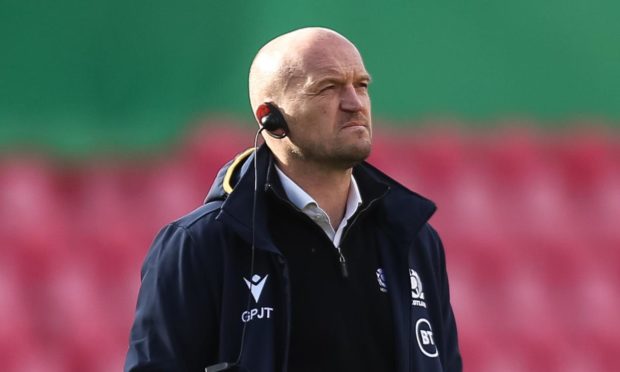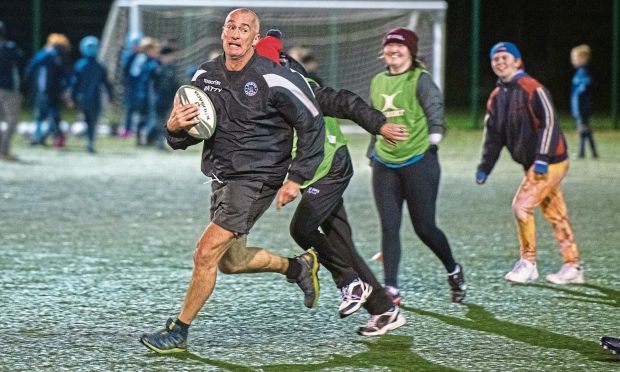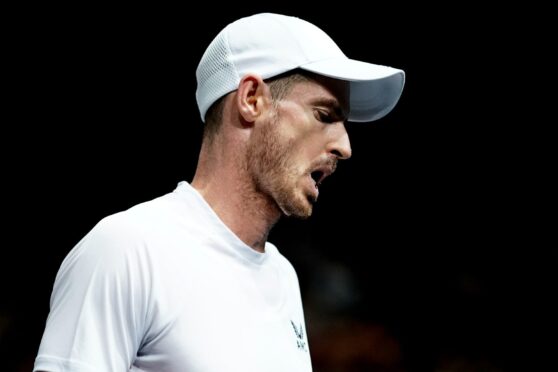Scotland’s first win in Wales for 18 years was also their third successive victory in the Six Nations, the first time they’ve done that in the championship since present head coach Gregor Townsend was the stand-off, back in 1996.
After the gloom of the early exit from the Rugby World Cup in Japan last October, 2020 has been better than most – including, it seems the head coach – had expected.
This has been an incredible bounceback after Japan
Leaving the World Cup, Scotland’s prospects for 2020 looked dreadful – a Six Nations with three away games and three summer tests in the toughest venues in the world seemed to suggest Gregor Townsend might not reach the Autumn Tests still in his post.
The performances in the first two games in the spring were mildly encouraging, but they were still losses and Scotland didn’t really impress against a poor Italy in Rome.
Yet the win over France – who would have been worthy Grand Slam champions this disrupted year – and now in Wales, and a lockdown that meant those Springbok and All Black tests were cancelled, have confirmed that Scotland are back on the upward curve.
The foundation has been defence and discipline, and it’s been achieved with our premier playmaker present for just half an hour of rugby.
There has to be much more incision in Scotland’s attacking play for them to take the next step, but Townsend does seem to have a squad of interchanging players with a sprinkling of X factor that can potentially, as he says, change a game in two minutes.
This is not the same as dour Scotland of the late 2000s and early 2010s when they preached a limited control game yet still conceded far too many points and never scored nearly enough. This is a proper foundation from which a more-rounded game can be constructed.
Scotland’s best defence ever?
Steve Tandy’s appointment as Townsend’s new defence coach when Matt Taylor exited for Australia (how’s that going, by the way?) was questioned by many, with some “authoritative” voices claiming he’d busted the Ospreys and would do the same to Scotland.
Scotland’s defensive record of just 59 points conceded in 2020 really constitutes their best in championship history. It’s easily their record for the Six Nations – only once before had they kept it below three figures – and you have to go back to the Five Nations of 1996 for a better tally, and of course then they played four games instead of five.
1993 was the last time they did better than this year’s average of 11.8 points a game. But it was basically a different sport then, which makes Tandy’s work in basically halving the amount of points Scotland have habitually conceded in the championship inside eight months a proper `coach of the year’ candidacy.
The `sprint maul’ is a massive weapon
Two weeks in a row Scotland have unveiled a seamless execution at the lineout drive, almost sprinting to the line for tries. The ones against Georgia were good, but Saturday’s was against a proper, top-quality organised pack with the most capped player in rugby history (and an all-time great maul specialist) in their ranks.
It was also interesting to see Jonny Gray taking charge, ordering both centres and even Darcy Graham (!) into the maul to help the drive, and they joined it in perfect form to make the momentum established unstoppable.
Recent data seems to be suggesting that tap penalties are a `safer’ option than going to the corner – hence the recent increase in that tactic – but Scotland should keep going for the drive if it works this well.
Delegating has worked
Townsend talked about his own reflection after the World Cup, and his own role. His solution has been to hand over more time to his assistants – not just Tandy, but Pieter de Villiers, who transformed the scrummage, to John Dalziel with the forwards, and also to Mike Blair as attack coach, a role which was previously Gregor’s baby.
The attack still needs a bit of work – I’m not entirely sure the personnel there at present works best but the new defensive foundation had to come first – but who can argue with the results so far and their immediacy?
As good a duo as there is in European rugby
They could still do with an outright No 8 who picks himself, but Hamish Watson and Jamie Ritchie are set in stone for the next while as the flankers.
Scotland lost almost three times as many turnovers as Wales did, but the ones Scotland forced were far more crucial, particularly Ritchie’s under the shadow of his own posts before half-time, and the one that clinched the match at the end.
Both Watson and Ritchie have been crucial to Scotland’s defence in their own 22, with their aggressive targeting of the ball meaning no situation is lost. They’ve been effective in attack as well, and Ritchie’s relish to get up the noses of the opposition is something `nice’ Scotland have lacked for too long.
If Finn and Adam can’t play, it has to be the return of Dunky in Rome
Typically, after all the expectation, Finn Russell lasted half an hour before suffering a groin injury and then Scotland lost Adam Hastings to a twice-separated shoulder. Both will surely miss much if not all of the Nations Cup.
Stuart Hogg moved to 10 for the final minutes in Llanelli but suggesting he stay there is just silly, even if he’d play hooker if they asked him. James Lang doesn’t play the position enough at the top level to be an option, and Edinburgh’s Jaco van der Walt won’t be available until mid-November.
Duncan Weir is the next in line, and deserves his shot again, especially as he’s renewed his career down at Worcester. He dropped the winning goal with seconds on the clock to win in Rome six years ago, and he’s good enough again now.


